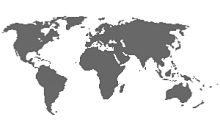
When it comes to saving for retirement, Canadians feel they weathered global economic downturn better than any other nation, according to a report released Monday by HSBC.
Just 18% of Canadians surveyed feel the economic downturn impacted their ability to save for retirement — the lowest of all markets surveyed, and well below the global average of 26%.
Although the research suggests that Canadians weathered the economic downturn relatively well, it also shows that on average, Canadians feel somewhat less prepared for the realities of retirement than their international peers. In fact, four in 10 Canadians are not confident in their ability to maintain a comfortable retirement — somewhat above the global average of 35%.
“The global research suggests that Canadians may not be feeling the tailwinds of the economic downturn on their retirement savings simply because the chill of too much debt and a high cost of living is taking precedence,” said Betty Miao, executive vice president and head of retail banking and wealth management, HSBC Bank Canada, in a news release.
“Despite signs that the global economy picked up in 2014, only 24% of Canadians surveyed have been able to save more for retirement this past year than in the previous year — well below the global average of 40%.”
The majority of Canadians surveyed (52%) say that paying off their mortgage or other debts is stopping them from adequately preparing for retirement, and 33% of Canadian respondents say they are less able to save money today than they were just one year ago — compared to a global average of 27%.
Canadians are also bucking global trends when it comes to building retirement income in addition to government and private pension plans. Of the Canadians surveyed, 39% plan to fund their retirement in-part through investment properties — well below the global average of 65%.
HSBC released its latest global survey report, The Future of Retirement: A balancing act, capturing the retirement views of 16,000 people — including 1,000 Canadians — from 15 countries and territories worldwide. The findings are based on an online poll conducted by Ipsos MORI in August and September 2014. The margin of error on a sample of 1,000 respondents is plus or minus 3.1% around the sample estimate.